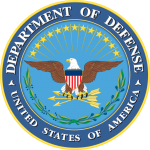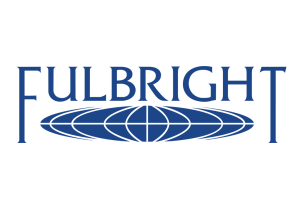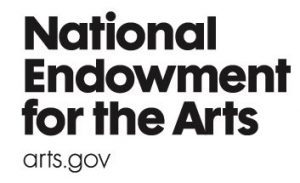External Funding
Get to Know Potential Funders
Before you submit a proposal learn about the agency or organization. Check out these handy guides from agency websites and the excellent Know Your Agency Series by the University of Colorado Denver’s Office of Research Development and Education. You will find helpful information including an Overview, Specific Interests and Approach, and how the submission and review processes work, and more.
Understanding Federal Funding
- Grants.gov’s Federal Grant-Making Agencies for funding agencies and missions
- New to how Federal Grants work? Check out Grants 101
- TIP: sign up on funders' websites for email alerts announcing funding opportunities
How to Contact the Program Officer
|
National Endowment for the Humanities (NEH)
The NEH is the largest federal funder of university humanities researchers in the United States. NEH grants typically go to cultural institutions, such as museums, archives, libraries, colleges, universities, public television, and radio stations, and to individual scholars. NEH’s funding programs are divided into seven divisions, each offering several grant opportunities.
Know Your Agency: NATIONAL ENDOWMENT FOR THE HUMANITIES
NEH Grants Specific Interest:
- strengthen teaching and learning in schools and colleges
- facilitate research and original scholarship
- provide opportunities for lifelong learning
- preserve and provide access to cultural and educational resources
- strengthen the institutional base of the humanities
National Institutes of Health (NIH)
Funding Opportunities
- NIH Funding Guide
- Specific NIH Institute or Center
- NIH Research Career Development Awards
- Grants.gov
- Strategy for NIH Funding
- What Are Your Chances?
- NIH Success Rates
Review Process
- How the NIH Peer Review Process Works
- Peer Review News & Info for Reviewers & Applicants
- Review Criteria
- How NIH Scoring Works
- Study Sections Who’s Who
Proposal Development
- NIAID New Investigator Guide to NIH Funding
- NIH Quick Guide for Grant Applications best practices when developing an application
- NIH Writing Guides & Samples
NIH Training and Career Development Awards
- NIH Support by Career Stage – Ph.D. Track
- NIH Quick Facts on Research Training & Career Development Awards
- Advice on Mentored Career Development Awards
Resources
- Sign up for NIH email & select your interest preferences
- NIH Guide ListServe
- NIH National Institutes of Mental Health (NIMH) ListServe
- Open Mike blog – Formally Sally Rockey Rock Talk blog
- NIH RePORTER Database lists detailed information on all projects funded by NIH
National Science Foundation (NSF)
NSF is an independent federal agency that funds ~24% of all federally supported basic research, and is the major source of federal fund for social sciences at U.S. colleges and universities. Its mission is to promote the progress of science; to advance the national health, prosperity and welfare, and to secure national defense. It does not support the medical sciences. NSF is divided into 7 directorates that support science and engineering research and education: Biological Sciences, Computer and Information Science and Engineering, Engineering, Geosciences, Mathematical and Physical Sciences, Social, Behavioral and Economic Sciences (SBE), and Education and Human Resources.
About NSF
- Main website
- Dear Colleague Letter: A Broader Impacts Framework for Proposals Submitted to NSF's Social, Behavioral, and Economic Sciences Directorate
- Directorate for Social, Behavioral & Economic Sciences (SBE)
- NSF Strategic Plan 2018-2022
- NSF’s “Big Ideas” for Future Investments
- UC Santa Barbara’s Useful NSF Info
- How the NSF Review Process Works
Finding Funding: Identify the NSF program(s) that best fit you research
- Video: How to Identify NSF’s Core Program that Fits Your Research
How to use the NSF website to identify the program and program director that is most likely to be interested in funding your research. - Search NSF Funding Opportunities Opportunities are released 90 days prior to deadline.
- NSF Due Dates
- Special NSF Funding Programs
- Sign up for NSF email select your interest preferences.
Department of Defense (DoD)
The Department of Defense support research grants through its multiple agencies. DoD’s main research and engineering websites: https://rt.cto.mil & https://ac.cto.mil have links to various agencies. Of particular interest to Social Scientists is the Minerva Initiative and to Psychology researchers is CDMRP, detailed below.
- Find any government agency grant, including DoD, via the grants.gov website.
~~~~~~~~~~~~~~~~~~~~~~~~~~~~~~~~~~~~~~~~~~~~~~~~~~~~
Know Your Agency
Air Force Office of Scientific Research (AFOSR)
Army Research Office (ARO)
Office of Naval Research (ONR)
~~~~~~~~~~~~~~~~~~~~~~~~~~~~~~~~~~~~~~~~~~~~~~~~~~~~
- The Minerva Initiative is a Department of Defense (DoD)-sponsored, university-based social science research. The goal of the Minerva Initiative is to improve DoD’s basic understanding of the social, cultural, behavioral, and political forces that shape regions of the world of strategic importance to the U.S. The research program will: Leverage and focus the resources of the Nation’s top universities; Seek to define and develop foundational knowledge about sources of present and future conflict with an eye toward better understanding of the political trajectories of key regions of the world; Improve the ability of DoD to develop cutting-edge social science research, foreign area and interdisciplinary studies, that is developed and vetted by the best scholars in these fields.
- Congressionally Directed Medical Research Program (CDMRP) The CDMRP fills research gaps by funding high impact, high risk and high gain projects that other agencies may not venture to fund. While individual programs are unique in their focus, all CDMRP programs share the common goal of advancing paradigm shifting research, solutions that will lead to cures or improvements in patient care, or breakthrough technologies and resources for clinical benefit. The CDMRP strives to find and fund the best research for the benefit of the American public, military personnel, and their families. Funding opportunities focus varies yearly. Current funding opportunities are found at http://cdmrp.army.mil/funding/default.shtml
- Due to the current Continuing Resolution, the Fiscal Year 2017 (FY17) Defense Appropriations bill has not been passed. Although funds have not been appropriated for the peer reviewed programs managed by the Department of Defense (DOD) office of Congressionally Directed Medical Research Programs (CDMRP), CDMRP is providing information to allow investigators time to plan and develop ideas for submission to the anticipated FY17 funding opportunities. Subsequent notifications will be sent when the program announcements/funding opportunities are released.
Know Your Agency: Congressionally Directed Medical Research Program (CDMRP)
Fulbright Scholar Programs
The Fulbright Program, including the Fulbright-Hays Program, is a program of highly competitive, merit-based grants for international educational exchange for students, scholars, teachers, professionals, scientists and artists, founded by United States Senator J. William Fulbright in 1946. Under the Fulbright Program, competitively selected U.S. citizens may become eligible for scholarships to study, conduct research, or exercise their talents abroad; and citizens of other countries may qualify to do the same in the United States.
The Fulbright Program is one of the most prestigious awards programs worldwide, operating in over 155 countries. Fifty-three Fulbright alumni have won Nobel Prizes; seventy-eight have won Pulitzer Prizes.
The program was established to increase mutual understanding between the people of the United States and other countries through the exchange of persons, knowledge, and skills.
The Fulbright Program provides 8,000 grants annually to undertake graduate study, advanced research, university lecturing, and classroom teaching.
~~~~~~~~~~~~~~~~~~~~~~~~~~~~~~~~~~~~~~~~~~~~~~~~~~~~
Find programs for US Scholars, Visiting Scholars, and US Institutions
Fulbright Award Policy
Private Foundations
| Review organizations’ reports and publications to give you an idea of which research they support. The sources listed below contain a wealth of information regarding foundations and their missions. |
Check out Philanthropy News Digest for information about foundations.
FoundationsDirectoryOnline is a subscription service and is available via our TAMU Library Databases website. The online database provides comprehensive information about the missions, goals, tax forms, and funding programs provided by foundations in the United States.
Check out these 3 articles from December 2016 Chronicle of Higher Education.
A Foundation Leader’s Advice: Come to the Meeting Prepared – Judith Shapiro
How to Court a Foundation – Kathryn Masterson
Strategies for Success in Working with a Foundation – Kathryn Masterson
~~~~~~~~~~~~~~~~~~~~~~~~~~~~~~~~~~~~~~~~~~~~~~~~~~~~
The Alan Lomax Fellowship in Folklife Studies
American Academy in Berlin
American Academy of Religion, click on “Programs.”
American Association of University Women
American Antiquarian Society Fellowship
American Cancer Society (ACS)
American Council of Learned Societies (ACLS) – **NOW OPEN**
American Heart Association (AHA)
American Historical Association, there is also members only Grants Guide
American Philosophical Association
American Philosophical Society
American Political Science Association, click “Resources” -> click “Grants in the Discipline,” which also contains an extensive list of funders for all humanities and social science disciplines.
Amy Lowell Poetry Traveling Scholarship
Andrew W. Mellon Foundation
Brain and Behavior Research Foundation
Brightfocus Foundation
Beinecke Rare Book and Manuscript Library – suspended for remodel until Fall 2016
Carey Institute for Global Good– non-fiction residency
Center for Philosophy of Science, Visiting Fellows Program, University of Pittsburgh
Dumbarton Oaks Research Library and Collection administered by Harvard Trustees
European Institute for Advanced Studies (EURIAS)
Frankel Institute, University of Michigan
Fred W. Smith National Library for the Study of George Washington
Folger Shakespeare Library, Research Fellowships (Long and short term)
Ford Foundation
Gates Foundation Grand Challenges Explorations (GCE)
The Getty Library (Getty Research Institute for the History of Art and the Humanities)
The Gilder Lehrman Institute of American History Fellowships in American Civilization
H-Net Humanities and Social Science Online
Hagley Museum and Library Fellowship
Harry Frank Guggenheim Foundation
Harry Ransom Humanities Research Center Fellowship
Houghton Library Fellowship, Harvard University
Howard Fellowships, Howard Foundation, George A. & Eliza Gardner
Huntington Library, Art Collections, and Botanical Gardens
Institute for Historical Studies, Resident Fellows, University of Texas at Austin
John Carter Brown Library
W.K. Kellogg Foundation
The Library Company of Philadelphia Fellowships
Library Resident Research Fellowship
Loeb Classical Library Foundation Fellowship, Harvard University
The Lilly Library (Fellowships discontinued during library renovation December 2019-Summer 2021. Some materials are online.)
The Massachusetts Historical Society Fellowships
Modern Language Association
McKnight Foundation
The National Council for Eurasian and East European Research
National Communication Association, click “Research”
National Gallery of Art Fellowship
National Humanities Center
NATO Fellowship Program
The Newberry Library Fellowships
New England Regional Fellowship Consortium
The New York Public Library
Patient-Centered Outcomes Research Institute
Princeton University Grants
Qatar National Research Foundation (PI must be Qatar-based)
Radcliffe Institute for Advanced Studies, Fellowship Program
Robert Wood Johnson Foundation (RWJF)
Rockefeller Foundation
Russell Sage Foundation
Social Science Research Council
Stanford Humanities Center (External Faculty Fellow)
United States Institute for Peace
Whiting Creative Nonfiction Grant
William Andrews Clark Memorial Library (UCLA) Fellowships
Winterthur Research Fellowship program
Woodrow Wilson International Center for Scholars
National Endowment for the Arts (NEA)
NEA main website
Grants for Individuals
Creative Writing Fellowships
Fellowships in fiction, poetry, and creative nonfiction enable recipients to set aside time for writing, research, travel, and general career advancement. Non-matching grants are for $25,000.
Translation Projects
Translation Projects enable recipients to translate work from other languages into English. Non-matching grants are for $12,500 or $25,000, depending upon the artistic excellence and merit of the project.





